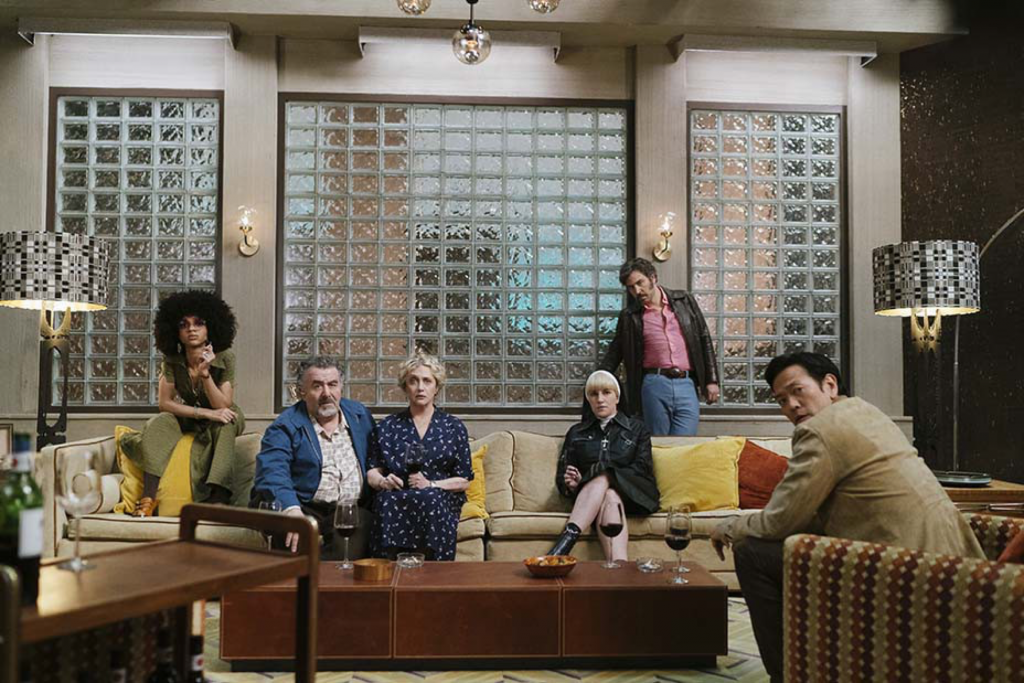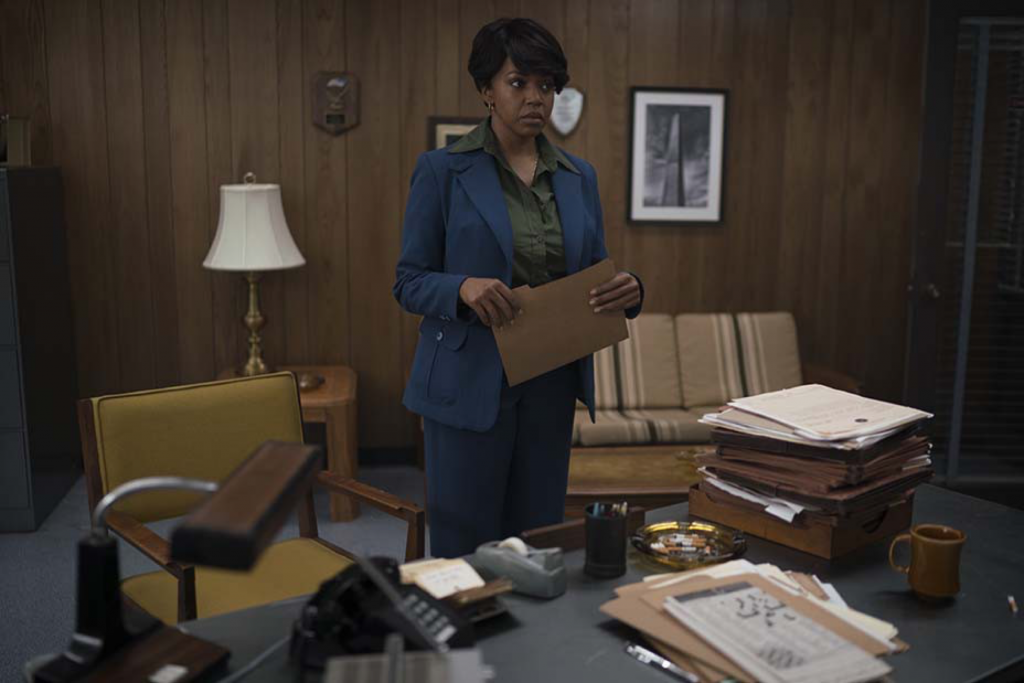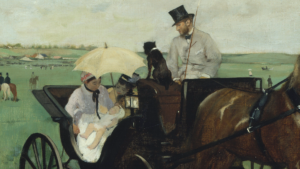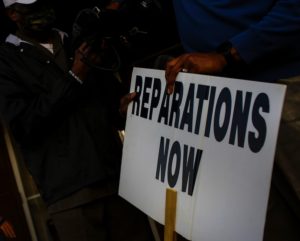Al Pacino and Logan Lerman star in the Prime Video drama, which features a comic book-inspired tone not found in traditional media about the Holocaust in a series that creator David Weil dedicates to his Auschwitz survivor grandmother.
Hunters, Amazon’s Nazi hunter drama that launched Feb. 21 on the company’s Prime Video streaming service, features a motley crew of New Yorkers in 1977 uncovering and taking out a web of Nazis who have infiltrated the U.S. As The Hollywood Reporter‘s chief TV critic Daniel Fienberg wrote in his review, the tone of the series flips from colorful ’70s comic book pastiche to serious concentration camp flashbacks in a genre hybrid he dubs “Jewsploitation.”
That look is the visual representation creator David Weil says was his own experience in learning about the atrocities of the Holocaust from his grandmother, a survivor of Auschwitz and Bergen Belsen (and to whom he’s dedicated the series). At first, her stories sounded “like the stuff of comic books and superheroes,” which is why the world of Jonah Heidelbaum (Logan Lerman) feels like a graphic novel before peeling back the layers of his family’s story. The series begins when Jonah’s grandmother, a Holocaust survivor, is murdered, leading the teen to discover that the woman who raised him was part of a vigilante group dedicated to uncovering Nazis living in the U.S. and taking them out.
Read more: ‘Hunters’: TV Review
“You’ll see Jonah’s evolution through this world that begins in this very graphic novel kind of place. But so, too, when I grew up and began to learn more and could understand more about the depth of degrees of the horror that [my grandmother] experienced, those colors began to desaturate and I began to see in stark reality what she went through,” Weil said. “So I think you will see those different modes and that evolution throughout the series of we’re in this graphic novel/superhero world, and then we’re back in the past and it becomes much more sobering and somber and horrific, but in a way that, to me, is not as gratuitous and more suggestive. And that pushes against the poppiness of the ’70s.”
The series is also a tribute to the experience of being Jewish, said Weil (which the showrunner spoke to further in his interview with hosts Fienberg and Lesley Goldberg in this week’s TV’s Top 5 podcast). Part of that experience involves humor, while part involves very real horror.
“To me, humor is such a powerful weapon. It is an antidote, it is a medicine for people who for so long have felt so persecuted, for generations have felt displaced or otherized in some way. I think Jewish wit and Jewish humor is so inherent in our culture and it’s in part a defense mechanism, so I wanted the experience of the show to mirror all of those things,” Weil said. “And because we’re dealing with something like the Holocaust, which demands a reverential portrayal and demands the truthful horror of what happened, it was also important for me to equally have not only humor and these break-the-form moments, but ultimately, I wanted the show to be about wish fulfillment and about catharsis. I wanted it to be about badass others. Growing up Jewish, there was Woody Allen and this nebbishy, intellectual, ineffectual [stereotype]. I wanted to see Jews onscreen with might and power and strength and this badassery.”
Lerman returns to TV for the first time since he starred as a 12-year-old future president in The WB’s Jack and Bobby — “That was the show that tanked the network! No, it was the last show The WB had before becoming The CW,” he explained, “so it was a transitional period in television and we’re in a much different place now.”

To Lerman, the superhero part of the equation didn’t register to him as much as the moral question at the center of the series: “Does it take evil to fight evil? Do you have to become a bad guy in order to fight the bad guys? He’s an interesting character to explore that question with because he’s obsessed with comics and they have a very clean cut sense of morality, right and wrong,” said the actor, whose credits include Perks of Being a Wallflower. “This world is heightened all over the place tonally but at the center of it, it has a very real question about how to effectively combat evil or a fascist uprising. Can you do that and keep your morals and ethics in tact? Is it possible? Or would you just lose the battle?”
Though the series is a fantasy, it’s still much more topical than anyone could have predicted the last time the actor was on television. But Lerman doesn’t see it as an exploration of current politics so much as the very personal question of what people become when they’re fighting fire with fire. “I think that the show is distinctly anti-fascist, but there’s also two sides to that when you have a team of people that are going around exacting justice the way that they see fit,” he said. “So it’s an interesting moral conflict at the center of the series.”
While the titular Hunters — led by Al Pacino’s Holocaust survivor Meyer Offerman and including Carol Kane, Josh Radnor, Tiffany Boone and Louis Ozawa Changchien — are hunting down Nazis, there’s someone on their trail, too: FBI agent Millie Malone (Grey’s Anatomy grad Jerrika Hinton), who sniffs out a conspiracy by linking several seemingly unrelated deaths.
She’s one of the first black women to work for the FBI, and she’s also a closeted queer woman hiding her sexuality from her colleagues — particularly following J. Edgar Hoover’s notoriously homophobic time at the head of the federal agency — and also her family.
Read more: ‘Hunters’ Trailer: Al Pacino Leads Group of Nazi Hunters in Jordan Peele-Produced Series
“She, of course, is coming up against all kinds of rampant sexism and racism, constantly undervalued and ignored by her colleagues, assigned the shit cases and things like that. Just so happens this particular shit case turns out to be not so shitty. It’s a big deal,” Hinton explained. “And so in the process of following this trail of breadcrumbs, because he’s persistent, she’s smart — she is a hunter — so in the she gets sucked into this world of government conspiracies, Nazis, all this stuff.”
It was a fun role for the Grey’s Anatomy vet because Millie sees the world in very binary terms, which meant there was only a matter of time before the rug was pulled out from under her. When that happens in the season is still a mystery, but it’ll be a very painful experience for the character, who’s always seen things in clear-cut ways.
“This woman is a devout Catholic even in her adulthood, and she works for the government. This is a woman who believes in institutions. She puts her faith in these overarching systems and believes that they will guide and protect her. That says a whole hell of a lot about who she is and how she approaches the world,” said Hinton. “And just as Jonah, Logan’s character, is going through his own coming-of-age story, she’s having her own parallel one, albeit much later in life. It shakes her to her core. She’s learning to allow for gray and learning that these systems aren’t necessarily there to protect you and don’t necessarily have your best interests at heart. And I think that’s a revelation for somebody like her.”

Pacino isn’t Jewish (nor German), so was unfamiliar with some of the Yiddish and German phrases Weil had written for him. But rather than focus on learning how to pronounce the more difficult words in the scene, he used the same technique he used for the Italian scenes in The Godfather.
Said Lerman, “He just makes it up in a musical sounding way on set and then dubs it in ADR afterwards accurately,” so he can focus on his character rather than the specifics of the language he doesn’t know. “There were a few times where he was curious about certain Yiddish words. And there were times where I wouldn’t correct him because I’m like, this is Al Pacino. I’m not going to correct his Yiddish right now, but I know that afterwards they’re gonna go in ADR and smooth it out.”
Read more: Logan Lerman to Star in Jordan Peele’s Nazi Hunter Amazon Drama
Weil, who signed a deal with Amazon in November (“I’m working on a number of things with them that hopefully we’ll be able to talk about in the future,” he said) and also has a series with Simon Kinberg currently in production at Apple (the series is filming in London, Morocco, Tokyo and New York), hopes to continue the series in a second season.
“I think the beauty to me of the second half of the season is that it gets even deeper and more grounded and quieter in a way. I think the cost of what our hunters are doing begins to really affect them, and there’s a lot of introspection and a lot of soul in the second half,” he said. While the story ties up a few loose ends, “there are a million cliffhangers in the sense that there are still many Nazis out there for our team to hunt. And man, oh man, do I want to hunt some Nazis in season two if Amazon will let us.”




